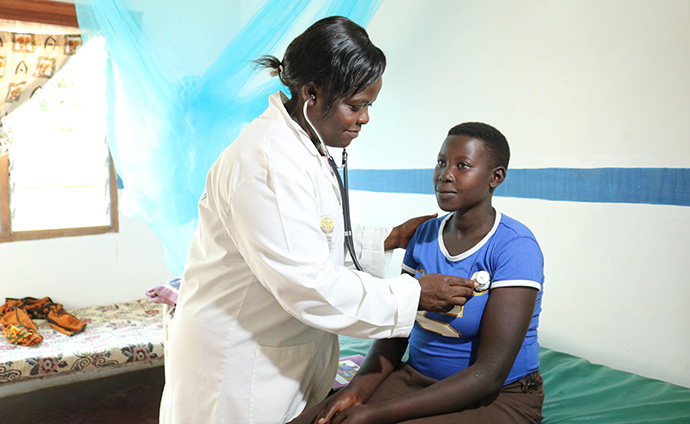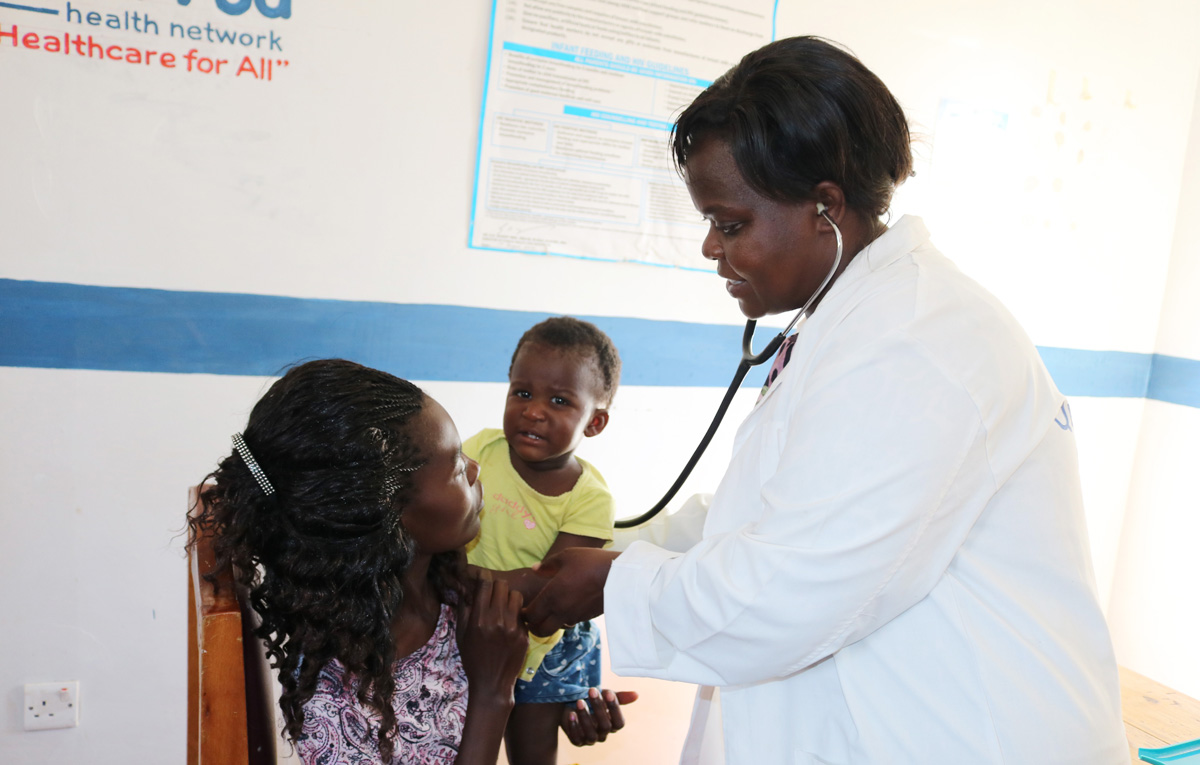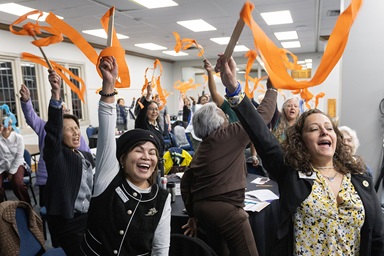At Kopanga Methodist Health Center, the maternity room measures slightly more than 18-by-30 feet, but it is not uncommon to open the door and find as many as nine mothers and their babies patiently waiting for their turn with the provider.
The United Methodist clinic serves an estimated 1,000 patients per month from eight area villages and neighboring Tanzania who have crossed the border for treatment.
As the number of COVID-19 cases continues to rise in Kenya (384 confirmed cases and 14 deaths), the clinic is stepping up efforts to protect vulnerable patients in this impoverished community. Efforts are focused on sharing information and hygiene tips to stop the spread of the virus.
Alice Wasilwa, a registered nurse and the clinic’s manager, said the government has provided hand-washing facilities, but she cited a lack of ventilators and adequate personal protective equipment as the main challenges facing the health center.
The clinic is a project of the Nyanza District of the Kenya-Ethiopia Conference. It was built through a collaboration between Partnering for Progress, a Spokane, Washington-based nonprofit, and the Comprehensive Rural Health Project in Migori County.
This region in Western Kenya has been hit particularly hard by HIV and AIDS and has a high rate of infant and child mortality. Limited health resources make it hard for new and soon-to-be mothers to access maternal health care. Many lack transportation from rural and mountainous areas and deliver at home. According to the latest estimates, the Migori County maternal mortality ratio is 673 deaths per 100,000 live births, which is nearly double the national estimate.
In addition to pre- and post-natal care, Wasilwa said the health facility oversees about 20 deliveries every month and assists up to 150 patients monthly with family planning. The average woman in Migori County has five children.
The clinic also recently was designated as an anti-retroviral clinic by the Kenyan department of health, which means patients with HIV can receive their medications there. Wasilwa said the hospital serves 350 clients with HIV, including 18 adolescents, 20 children and 39 HIV-exposed infants.
“We hope that the HIV-exposed infants will graduate without infection,” she said.

Pendo Jacob, a resident of Tanzania and beneficiary of anti-retroviral therapy, said the facility helps in many ways.
“Women in my area for the most part come to the clinic on foot despite the long distance across the border for HIV testing and anti-retroviral therapy,” she said.
Benta Wakati said the clinic saved her life after she sustained a deep cut during a conflict with her husband.
“I was forced to leave home with my little baby while bleeding heavily,” she said. “Wasilwa supported me; she gave me a roof to sleep under and enough food after receiving treatment at the clinic.”
The clinic is careful to provide culturally appropriate care to those who cross the border.
“In Luo tradition, women believe in traditional medicines. We are often told not to go to the hospital and instead visit traditional birth attendants. Women take the leaves from a tree to protect the baby and will drink water boiled with leaves,” said Millicent Adhiambo, a new mother who sought care at the clinic.
Adhiambo expressed concerns about the use of the herbs during pregnancy. She said her health and that of her baby were at risk after visiting a traditional birth attendant.
“When I first had troubles, I went to the traditional birth attendant. The problems continued, so I went to the clinic and they gave (me) medicine and the problems got better after that,” she said.
Elizabeth Atieno, a nurse at the clinic, said there is a need for support so that more women can be empowered with decision-making skills regarding childbirth.
“Through empowerment, barriers that prevent them from going to the health facility in time during pregnancy will be lowered,” she said.
The Rev. Kephas Oloo, Nyanza District superintendent, singled out the church’s commitment to improving the health of the people in the community.
“As the church, we are passionately committed to working as a team with villagers in Migori County to help them improve their quality of life in the areas most important to them, including health care access, sanitation and clean water supply,” he said.
The Rev. Wilton T. Odongo, conference secretary to the East Africa Episcopal Area and Nairobi District superintendent, recognized the need to increase staff and improve the infrastructure of the modest facility.
“There is a need for adequate equipment, especially a delivery couch, maternal/child health wing, modern maternity ward, running water and rooftop catchment and tank storage, renovation and tiling of the floor,” he said.
He also noted that funds were needed to start other income-generating activities to support the facility, such as farming, goat rearing and fishing.
“Despite the challenges, there is a great opportunity to the vast Kopanga land laying unused for agricultural farming activities,” Odongo said.
The health center is on 26 acres and only two are being used currently. He said the conference has taken land samples for soil analysis with the intention of securing partners to invest in farming activities.
Odongo said despite the challenges faced by the people of Kopanga, they remain hopeful.
“These amazing people, who live in a minimal world and are afflicted by so many horrific diseases, take each moment as it is handed to them and exude with joy and respect for others. They are happy.”
Maiga is a communicator for the Kenya-Ethiopia Conference.
News media contact: Vicki Brown at (615) 742-5470 or [email protected]. To read more United Methodist news, subscribe to the free Daily or Weekly Digests.
Like what you're reading? Support the ministry of UM News! Your support ensures the latest denominational news, dynamic stories and informative articles will continue to connect our global community. Make a tax-deductible donation at ResourceUMC.org/GiveUMCom.




